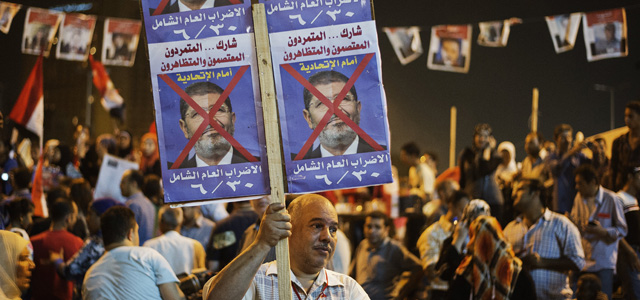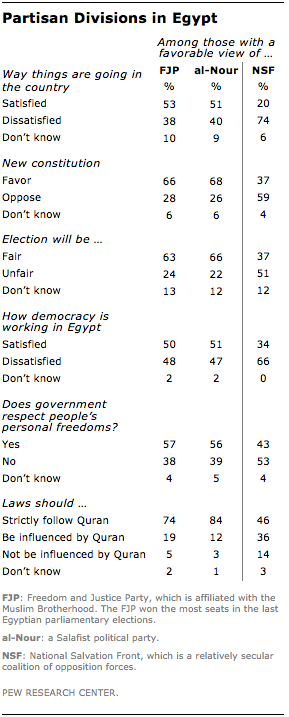

June 30 will mark one year since Egyptian President Mohamed Morsi took office, and the country’s opposition movement is planning to commemorate the anniversary with nationwide protests that, even by recent Egyptian standards, are likely to be quite large.
Over the last year, Morsi has presided over growing political polarization and increasing disappointment with the direction of post-Mubarak Egypt.
A Pew Research Center survey conducted in March found a grim public mood. Only 30% of Egyptians think the country is on the right track, down from 53% in 2012 and 65% in 2011, in the heady days following the revolution that ended Hosni Mubarak’s three decades in power.
Just 23% describe the economic situation as good, and optimism about the economy is waning – 29% expect the economy to improve in the next 12 months, down from 50% in 2012. Public safety is also a top concern: 44% say law and order is getting worse, while just 26% think it is getting better.
And divisions within Egyptian society are widening. In particular, across a number of fundamental issues, there are huge gaps between supporters of Islamist oriented political parties and supporters of the more secular opposition. For instance, among those who have a favorable opinion of the Muslim Brotherhood affiliated Freedom and Justice Party (FJP) and the Salafist al-Nour Party, about half are satisfied with the country’s direction, while just 20% hold this view among those who have a positive view of the National Salvation Front (NSF), a relatively secular coalition of opposition forces.
NSF supporters are also much less likely to favor Egypt’s new constitution, which was approved in a controversial December 2012 referendum, and to believe that the upcoming parliamentary elections will be fair. And there are significant partisan divides over how well Egypt’s new democracy is working and how well the current government, headed by former Muslim Brotherhood member Morsi, is protecting personal freedoms.
The role of religion in political life is also a major dividing line. Among FJP and al-Nour supporters, large majorities say the country’s laws should strictly follow the teachings of the Quran, while less than half of NSF supporters agree.
Still, there are areas of agreement. Majorities in all three partisan groups believe democracy is the best form of government, and across the political spectrum there is strong support for the principles of free speech and a free press. And among supporters of all three parties, more than-eight-in-ten say that attending protests gives people like them an opportunity to express their opinion about how the government runs things.